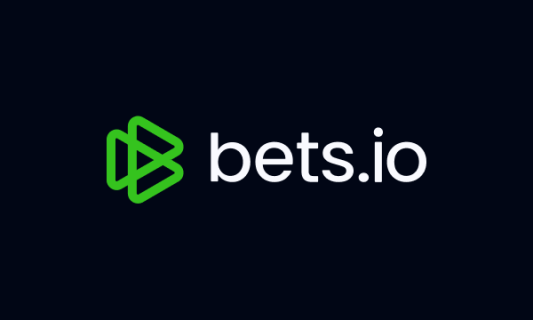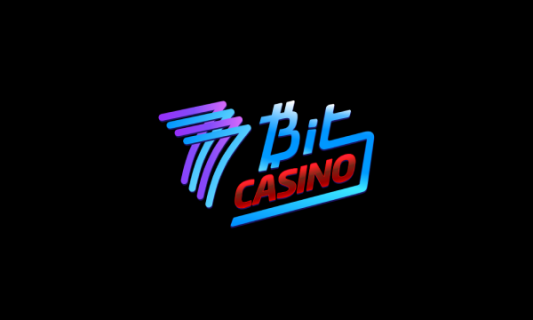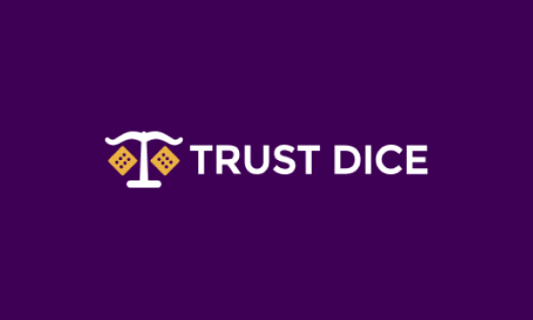Best Online Casinos in Germany for 2025
We can help you choose wisely because our experts have reviewed and rated German online casinos. Below, we offer you a list of the best casino sites in Germany, as well as a full guide to gambling in the country.
Germany is among a few countries with a fully legalized gambling industry. Casino operators can apply for a local license, but the rules they have to abide by are some of the strictest in the world. Online casinos must set bet, session, and monthly deposit limits for players, as well as follow many other regulations. All these limitations aim to protect players, and the statistics say Germany is one of the safest gambling markets globally. Even with such a high security level, we recommend you choose casino sites carefully to enjoy the best gaming conditions.
How We Choose the Best Online Casinos for German Players
Our experts thoroughly check all online casinos available in Germany. We review them using the following criteria:
Gambling license
We offer you only licensed casinos. All gambling sites should have a license from the Joint Gaming Authority of the Federal States (GGL) or other reputable European entities, like the Malta Gaming Authority (MGA) and the United Kingdom Gambling Commission (UKGC).
Game selection
We believe the best online casinos should offer a wide range of games, including slot machines, table games, and live games. For example, Energy Casino, with 5,000+ gaming titles from 50+ providers, is the best according to this criteria. It’s the top choice for slot fans.
Payment methods
We aim to choose casino sites with simple, fast, and secure payments. It allows you to fully focus on gambling instead of trying to resolve deposit and withdrawal issues. The statistics say Germans prefer paying with Visa, MasterCard, PayPal, and Bank Transfers in online casinos.
Support service
Casino sites with round-the-clock support for players via live chat, phone, and email get the highest ratings from our team. We test the customer team quality and response speed by making several inquiries during the review period.
Bonuses and promotions
Both new and established website users should have access to lavish bonuses and engaging promotions. It’s a players’ way to get real benefits from the casino, so we scour the market in search of the best offers. Our experts also scrutinize the Bonus Terms to ensure reasonable wagering requirements.
Note!
German laws limit online casinos in the size of bonus offers and gambling advertising. You can usually get up to €100 with an x30 to x40 wagering requirement.
Mobile casino
We check whether the site features mobile optimization and offers a smartphone casino app. Most online casinos provide only a mobile website. Those that offer apps get an increased rating from our team.
German localization
We expect casino sites to have German interface language and customer support. It ensures comfortable gambling, quick game search, and clear Terms & Conditions.
Best German Online Casino Bonuses
Bonuses and promotions can make your gambling more entertaining and engaging. Here are the most common types of online casino bonuses:
Welcome bonus
Welcome Bonus is a new players’ bonus, available only once per account. It may bring you bonus funds or free spins. German online casinos usually offer a 100% welcome bonus of up to €100.
A great example would be Casumo Casino, which meets new users with a 100% match bonus of up to €100 plus 50 free spins on Book of Dead by Play’n Go. The offer features an x40 wagering requirement and a 30-day wagering deadline.
Other casino welcome bonuses worth mentioning:
| Casino | Welcome Bonus | Bonus Code |
|---|---|---|
| Haz Casino | 250% Up To €1,000 + 125 Free Spins | SPECIAL300 |
| Bonanza Game Casino | Up To $2,100 or Up To 300 Free Spins | FIR3 |
| TrustDice Casino | Up To $90,000 + 25 Free Spins | No Bonus Code |
No deposit bonus
This rare online casino offer provides a prize without a balance top-up. It may include a small number of free spins or bonus funds. You can claim it by registering an account, installing a casino app, verifying your account, or with other required actions.
Enjoy a no deposit sign-up bonus at Mr.Green Casino. It provides 25 free spins on Book of Scroll worth €0.2 per spin each. The bonus comes without wagering. You can cash out the winnings immediately!
Cashback
It’s a special offer for established users, which returns some of your losses in real money games. The cashback rate varies for different casinos. It’s usually between 5% and 15%.
Note!
Most online casinos offer cashback wagering-free. The funds go straight to your cash account, but the bonus amount is limited. It’s often no more than €100 weekly.
Free spins
This promotion is popular with German players, so local online casinos offer it frequently. You can get free spins as a part of a welcome bonus, for a deposit, and due to VIP program rewards. Casinos provide free spins for predetermined slots. The bonus allows you to spin the reels without using real funds and win money.
Reload bonus
You can get the bonus for a deposit. It requires a top-up on a particular day within predetermined hours. Your deposit should meet the minimum limit. The bonus brings you extra funds, depending on the payment size. It usually matches your deposit by 50% or 100% of up to €100 – €200.
VIP program
Online casinos offer VIP program prizes for loyal users. You can become a VIP player by betting real money in games and depositing funds into your account. A better membership status level brings exclusive benefits, like personalized promo offers, free spins, increased payment limits, faster cash-outs, and other perks.
Omni Slots Casino has a top VIP program with premium bonuses, special promotions, many free spins, a VIP support service, and personalized gifts.
German Online Casino Payment Methods
German online casinos offer various depositing and withdrawal solutions. Players can choose those that fit their preferences. Below, we briefly review the most popular payment methods.
| Payment method | Deposit Limits | Withdrawal limit | Withdrawal Time | Fees |
|---|---|---|---|---|
| Credit and Debit Cards | €20 – €1,000 | €20 – €5,000 | 2 – 3 days | – |
| PayPal, Skrill, Trustly | €20 – €1,000 | €20 – €5,000 | 2 – 3 days | – |
| MuchBetter | €20 – €1,000 | €20 – €5,000 | 2 – 3 days | – |
| Sofort, Giropay | €20 – €1,000 | €20 – €10,000 | 5 – 8 days | – |
| Paysafecard | €20 – €100 | – | – | – |
Debit and credit cards
Visa and MasterCard are the most popular casino payment methods. Transactions with cards require providing the card number, expiration date, and CVV2 code. They are swift and secure, which highly contributes to the payment method’s popularity.
Expert Tip!
We recommend you get a dedicated virtual bank card for online casino deposits. Replenish it just before you deposit on the gambling site. This way you can increase payment security and control your expenditures on casino gaming.
E-Wallets, prepaid cards, and instant banking
Many players prefer electronic payment systems due to fast payments, security, and convenience. Here are the most popular German banking solutions in this category:
- PayPal. A top e-wallet available worldwide, PayPal features high popularity and offers unmatched security. The Demandsage reports that this payment system processed $25 billion in transactions in 2023.
- Skrill and Neteller. These two e-wallets focus on gambling transactions and provide instant deposits. They feature the top data protection level.
- Paysafecard. A popular prepaid card brand, Paysafecard allows safe and anonymous online casino deposits.
- Trustly. Instant transactions from your German bank account without revealing sensitive credentials to the casino make Trustly a perfect solution for gambling payments.
E-wallets support instant withdrawals, but you still have to wait up to 24 hours to receive the funds. The best German online casinos must keep payouts pending for some time to ensure security and data protection.
Bank transfers
This traditional payment method appeals to gamblers with the top security and the support of high transaction volumes. The best German online casinos offer such bank transfer solutions:
- Giropay. A popular bank transfer payment system, Giropay supports most German bank institutions. You don’t have to open a new account to use it. Giropay transactions are fast and secure.
- Instant bank transfer. You can instantly transfer funds from your German bank account to your casino account.
Bank transfers are among the safest payment methods. They are perfect for players who want to cash out big winnings. The downside is a long withdrawal time of 5+ business days.
Best Online Casino Games in Germany
Online casinos offer a wide variety of gambling games to play for real money. This list includes slots, table games, live games, and other game types.
Important!
Germany has specific online gambling regulations. It delivers some inconveniences for players, like a 5-second delay before the next spin, no Autoplay mode, and lower RTP in games.
Online slots
Our research shows that most German players prefer slot machines. Knowing that we rate online casinos with many slots best.
Slot machines are gambling games with simple rules, where players spin the reels and collect winning combinations. They may have various themes, mechanics, and features. Here are some of the most popular slots to play in German online casinos:
- Book of Dead by Play’n GO – an iconic slot machine that stands out with a free spin bonus featuring an expanding symbol. The latter can bring you massive winnings.
- Starburst by NetEnt – the top performer in online casinos. The game offers many wild symbols and the Respin feature.
- Gonzo’s Quest – a popular slot machine with the Cascading winning mechanics. A single spin may bring you a chain of consecutive prizes.
Table games
Players like table games because their outcome depends on experience and skills, besides luck. Our player survey at ComeOn, CasinoLuck, and Mr. Green Casino showed that 35% of users choose table games. Are you one of such players? Then, you’ll surely enjoy the following games:
- Roulette – an online table game with major variations like European, American, and French Roulette. Simple rules and high payouts made it extremely popular in German online casinos. The most played gaming titles are European Roulette by NetEnt and Immersive Roulette by Evolution Gaming.
- Blackjack – a quick-pace card game featuring classic, multi-hand, live, and many other variants. The most popular blackjack games are Infinite Blackjack by Evolution Gaming, Blackjack Party by Evolution Gaming, and Classic Blackjack by NetEnt.
- Poker – an online casino version of the popular card game. The most popular variations are Texas Hold’em, Omaha, and Stud Poker. You can choose the one you like and use your experience to get winnings.
Interesting Fact!
Blackjack is among a few casino games where a player can influence the outcome of the round. You can use the Basic Strategy to decrease the house edge to 0.5% or lower.
Live dealer games
Live casino games allow you to feel like playing at a land-based casino venue while staying anywhere you want. German online casinos offer live blackjack, roulette, baccarat, game shows, and poker. You can interact with real croupiers, which promises a highly engaging gambling experience. Here are the most played live games:
- Lightning Roulette by Evolution Gaming – a live roulette game with x50 – x500 win multipliers.
- Crazy Time by Evolution Gaming – a game show with Hunt, Pachinko, Coin Flip, and Crazy Time bonus rounds.
- Blackjack Party by Evolution Gaming – classic blackjack with two dealers and a stunning gaming atmosphere promising a relaxed casino experience.
Expert tip!
Always split pairs of eights in blackjack. Having a total of 16 is a bad outcome in the game, so splitting it allows you to avoid a loss and potentially get two winning hands.
Progressive jackpots
The best online casinos in Germany frequently offer progressive jackpot slots. These RNG-based games offer huge prizes. The progressive jackpot sum accumulates and often exceeds €1 million. The most famous progressive jackpot games are:
- Mega Moolah by Microgaming – the most lavish progressive slot that has already made 120+ players millionaires. The game has four jackpot levels: Mini, Minor, Major, and Mega. Anyone can win them randomly on a lucky spin.
- Hall of Godsby NetEnt – a progressive slot with a bonus round, where you crush shields with Thor’s hammer to reveal a Mini, Midi, or Mega jackpot.
- Arabian Nights by NetEnt – a progressive jackpot game that appeals to players who like classic interface and simple bonus features.
Editor’s tip!
You can win a progressive jackpot only randomly. Your bet level and gaming time don’t impact the odds. Play for fun, and don’t pursue the jackpot intentionally.
Online Gambling Laws and Rules in Germany
The German gambling legislation significantly changed on the 1st of July 2021. The Interstate Treaty on Gambling was enacted, providing a nationwide framework for casino sphere regulation. You can find its full text here.
This new law aimed to protect players, minimize gambling addiction risks, and fight illegal casino gaming. Its stringent rules help the government properly regulate the market.
Gambling legislation history and the most recent updates
The State Treaty on Gambling 2012 was the key document to regulate the industry before the newest legislation came into force. It regulated the industry on a federal level and heavily restricted online gambling. The law allowed sports betting and lotteries but fully banned online casinos. The Schleswig Holstein Land was the only exception from the rule. It allowed online casinos in 2012, but it didn’t last long.
Players used to play on illegal sites due to severe legislative restrictions. It resulted in a massive unregulated gambling market without decent player protection. The 2021 Law was enacted mostly because of the thriving of illegal online casinos. This document changed the legal background and allowed gambling providers to apply for licenses.
Online gambling legalization and licenses
All online casino operators must apply for a German license to legally operate in the country. Non-licensed gambling sites are deemed illegal.
The law divides gambling into categories like slots, poker, table games, and sports betting. Each received separate rules:
- Online slots and poker feature an open licensing model. Every provider that complies with the requirements can get a license.
- Table game licensing is entrusted to federal Lands.
- Sports betting licenses are available to all operators. However, their rules include limits on live bets.
Gambling regulations and player protection
The goal of protecting players and preventing gambling addiction is central to the new legislation. The measures to reach it include the following deposit and bet limits:
- €1,000 monthly deposit limit;
- €1 per spin slot machine bet limit;
- 5-second break between every spin;
- Slots don’t have an Autoplay function.
Players can’t use several gambling sites simultaneously.
Gambling authority
Gemeinsame Glücksspielbehörde der Länder (GGL) is a German authority that regulates online gambling in the country. It was created in 2021 as a result of legislative changes. The Authority issues casino licenses, controls and monitors gambling operators’ activity, protects players’ rights, and takes measures to counter illegal gambling.
Are land-based casinos legal?
Land-based casinos are legal in Germany. Each of the 16 Lands can regulate mortar-and-brick casino venues independently and set their maximum quantity in the region. Land-based casinos must abide by stringent rules regarding licensing requirements, taxation, and player protection. The top 3 German offline casinos are:
- Casino Baden-Baden – one of the oldest and most prestigious casinos. Many say it is one of the first such venues in the world. This casino offers a wide selection of table games like poker, roulette, and blackjack, as well as the best slot machines.
- Spielbank Berlin – one of the biggest German casinos, located in the country’s capital. It is famous for its game variety, including poker tournaments, roulette, blackjack, and over 350 slot machines.
- Casino Hohensyburg – a big casino venue located on the picturesque hills near the Ruhr River. It stands out with top game variety, exclusive events, entertainment shows, and luxurious restaurants.
Is It Safe for Germans to Play Online Casinos?
You can play online casinos safely. However, safety is your responsibility in the same way as the casino’s. Here are a few tips for safe gambling:
- Play only in licensed online casinos;
- Learn about the casino’s rating, reputation, and user feedback. You can find the information on our website or use resources like Trustpilot;
- Use only secure deposit and withdrawal methods;
- Don’t break the casino’s rules;
- Don’t provide your personal information to third parties;
- Use a strong account password;
- Enable 2-factor authentication.
The Security Week research showed that phishing and cyber attacks are the major security threat reasons in German online casinos. The most common fraud cases are data theft via fake websites and malware distribution via emails and links.
Responsible Gambling Tools in German Online Casinos
Online casinos offer many tools to help you play responsibly, including:
- Deposit Limits. You can cap the maximum daily, weekly, and monthly top-up sum.
- Panic Button. This feature is available on all German-licensed websites. Use it to block your access to gambling for 24 hours immediately.
- Bet and Loss Limits. You can use this tool to limit the maximum bet and your losses per certain period.
- Session Limits. The feature allows you to control how much time you spend on gambling.
- Reality Check. You regularly get notifications on time spent playing casino games on the site.
- Self-Exclusion. This strong measure allows you to block yourself from gambling in German casinos for a long time or even indefinitely.
We recommend you reach out for professional help if you were affected by gambling addiction. You can get aid here:
- Deutsche Hauptstelle für Suchtfragen (DHS)
Website: www.dhs.de - Bundeszentrale für gesundheitliche Aufklärung (BZgA)
Website: www.check-dein-spiel.de - Gemeinsame Glücksspielbehörde der Länder (GGL)
Website: www.gluecksspiel-behoerde.de - Spielsuchthilfe e.V.
Website: www.spielsucht-hilfe.de























